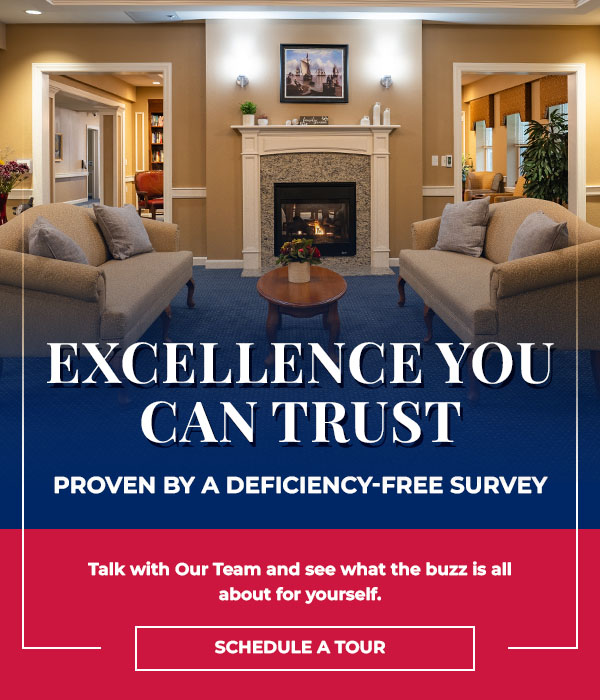Being the primary caregiver of someone is a demanding job. And in some cases, it can become very overwhelming. Short-term respite care—or simply respite care—is designed to give caregivers much needed (and deserved) rest.
All the best intentions and love in the world won’t prevent caregiver fatigue. There comes a certain point where you simply need a break to take care of yourself. Several options exist, ranging from an afternoon break to several weeks.
Respite care is a helpful tool that enables caregivers to care for themselves so they don’t get burnt out.
Forms of Short-Term Respite Care
There are several forms of respite care available depending on the needs of the individual and their caregiver.
At Home Care
There are a few different ways to arrange respite care in the comfort of your home. At home respite care is typically as-needed but can also be regularly scheduled.
Some religious or community organizations offer volunteer respite care if budget is an issue. On the other hand, various agencies and companies provide paid respite care by trained professionals.
Sometimes hiring a homemaker services business to take some responsibilities off your plate like cooking and cleaning can be enough to give you a break.
Adult Day Center Programs
Adult day care centers can provide you with immense relief as a caregiver. Typically these programs run throughout the week. They provide a place for aging adults who cannot live independently to be a part of a community.
These programs usually include planned activities like exercise or fun classes to promote well-being. You can run errands or simply sit down and take a break with the confidence that your loved one is in good care.
Assisted Living Facilities
All American Assisted Living at Kingstone is one example of a facility that offers many respite care and assisted living services. One might assume these types of facilities are big apartments for senior citizens who cannot care for themselves, but that’s not the case—they are more than that.
Because assisted living facilities are set up for long-term care, they can easily accommodate extended visits. These facilities have trained staff 24/7 to take care of your loved one.
Whether your loved one needs help eating, taking their medications, or likes to go for a walk every day, the assisted living facility staff ensures you have nothing to worry about while you’re away.
Choosing Short Term Respite Care
There are several things to think about and ask yourself when deciding on the right respite care for you and your loved one.
- Ensure that the program or facility has adequate insurance, training standards, and credentials.
- If you’re paying for the care, determine what services the price includes.
- What is the planned length of stay? Suppose you need several weeks of respite care for your loved one. In that case, you’ll need to hire an in-home caregiver or look at an assisted living facility.
- If your loved one requires any special medical attention, ensure the program you choose can accommodate the special care.
- Does the program or facility have a plan for dealing with emergencies or keeping track of their patient’s medications and conditions?
Any reputable assisted living facility or agency will be happy to answer all your questions. If you can’t relax and trust that your loved one is in good hands, respite care will be a waste because you won’t actually be able to rest.
Communication With Family and Friends
In some cases, if multiple family members or friends are involved, there is a chance to bear the responsibility together. But quite often, one person ends up taking on more than they can handle, and problems begin to manifest that lead to negative thoughts and burnout.
There are a few ways to help keep everyone on the same page regarding the ongoing care of loved ones.
- Keep open lines of communication: If you are the primary caregiver, share the day-to-day with friends and family. If they understand what the care requires, they may be more willing to help in the caregiving or support you in other ways.
- Share the load: When possible, sharing responsibilities of 24/7 care can go a long way to prevent needing to pay for respite care.
- Talk about your feelings: If you’re feeling alone or taken for granted, don’t bury those feelings. Not dealing with these feelings is the quickest way to resentment. And once you begin to harbor resentment, you won’t be providing the level of care you could be, and you will suffer burnout much sooner.
- Find a support group: Whether you have good relationships with the rest of the family and receive their help, joining a support group is a good idea. It will give you a place to talk about how you feel about being a caregiver and meet other people in the same boat as you. Community fellowship goes a long way to improving our lives.
Closing Thoughts
If you’re considering short-term respite care facilities, allow the helpful staff of All American Assisted Living at Kingston to answer your questions. Get in touch with us today. We’re happy to answer any questions or schedule a tour for you and your loved one.





